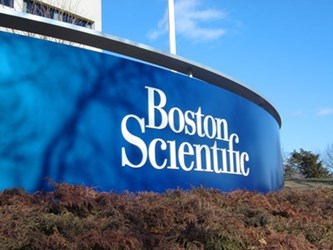Boston Scientific Builds Momentum With Cardiac Rhythm Devices, Gains Flexibility

Boston Scientific credits its “category leadership strategy” for the company’s staggering 27 percent net income growth in the second quarter of 2016. CEO Mike Mahoney commented that Boston Scientific is aiming for “as much financial flexibility as we can have” and is on track to sustain momentum in its cardiac rhythm management business (CRM), which had lagged due to a lack of MRI-compatible products.
In April, Boston Scientific reported its best quarterly performance in over a decade, which analysts attributed to Mahoney’s strategy of diversifying into less saturated business opportunities and increasing global penetration in emerging markets. This strategy drove 11 percent growth and offset a 3 percent dip in the company’s CRM segment in the first quarter of 2016.
As predicted by CFO Daniel Brennan earlier this year, the FDA’s approval of Boston Scientific’s suite of MRI-compatible pacing devices has given CRM a significant boost. The company posted an 18 percent hike in CRM business compared to the first quarter (four percent increase compared to Q2 2015) and reported $512 million in revenues.
Boston Scientific’s $2.1 billion in Q2 sales represent a 15 increase on a reported basis. Five of Boston Scientific’s business segments — endo, urology public health, neuromodulation, interventional cardiology and peripheral Interventions — drove double-digit growth, said Mahoney in a recent earnings call.
“Our strong performance is evidence of the success of our category’s leadership strategy,” said Mahoney, who recently was named chairman, in a press release. “Our deep portfolio, commitment to innovation and high-performance culture are helping us meet the needs our customers and patients while sustaining growth and momentum.”
Mahoney highlighted FDA’s recent approval of the Precision Montage MRI Spinal Cord Stimulator System, two studies likely to bolster clinical support for the Watchman left atrial appendage closure (LAAC) device, and positive long-term safety and efficacy outcomes for the Subcutaneous Implantable Defibrillator (S-ICD) system in the EFFORTLESS study. Regarding Watchman, three-month data from a 1,000-patient EWOLUTION registry demonstrated a 98.5 percent success rate, and Mahoney commented that structural heart will continue to be the company’s largest area of ongoing investment.
“We continue to beat our long-range strategic plan goals and execute very well as a global team,” said Mahoney, adding that the company continues to “gain share in our core markets, expand into faster growth adjacencies and deliver solutions that address unmet clinical needs.”
Mahoney also reported significant progress in resolving legal disputes involving the Boston Scientific’s pelvic mesh products and IRS concerns. Because the company managed to “eliminate uncertainties on the balance sheet,” it should have more flexibility moving forward. Boston Scientific is projecting $8.37 billion in profits for its businesses by the end of 2016, reported the Star Tribune.
Also, Boston Scientific this week picked up Cosman Medical, a manufacturer of radiofrequency ablation (RFA) systems, to boost its neuromodulation portfolio. When asked if the projected profits would be leveraged into more M&A strategy, Mahoney commented that his goal is “to get as much financial flexibility as we can have.”
